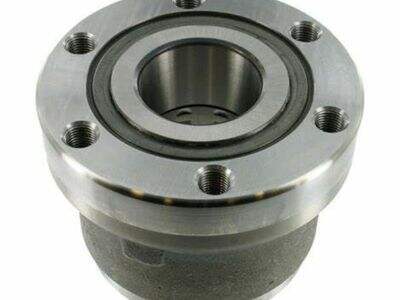One of the key ingredients in making engines run quietly and smoothly is bearings, so let's talk about engine bearing choice. Bearings are small round chunks that allow parts of the engine to spin instead of rub against each other. Choosing the proper bearings can reduce engine noise.
Relevance of Bearing Selection for Engine Noise:
Proper bearing selection keeps the engine running smoothly. Engines generate a lot of noise while running, but the proper bearings can quiet that noise down. And that matters because we actually want engines to be quieter while they’re functioning.
The Interplay of Bearing Materials and Engine Noise:
Bearings' material is equally crucial. Various materials can alter the amount of noise the engine emits. So for example, using harder materials for like steel crankshaft bearing makes the engine quieter and prolongs its life. However, if they’re made of softer materials, they may not be as effective at noise reduction.
What Goes Wrong when Bearings are Not Right:
The engine can get noisier if we pick incorrect bearings. For instance, if we select smaller bearings, they may not support the engine’s weight as optimal, leading to more noise. Using the incorrect materials can lead to increased wear of the wheel bearing, along with an increase in engine noise. Which is why you need to choose the correct bearings carefully.
The Need for Lubrication:
Lubrication is another important aspect of selecting bearings in an engine. Lubrication reduces friction and therefore noise emissions. The engine can run quietly and smoothly when we put the right bearings and get them properly oiled.
How Noise Depends On The Bearing Clearance
It is the opening between the bearing and the supported part. Once there’s not enough space, the bearing can’t move properly, leading to more friction and noise. If there’s too much gap, too, the bearing may not seat the engine correctly, and this can also cause more noise. Thus, the clearance should be considered during the selection of bearings.

 EN
EN
























